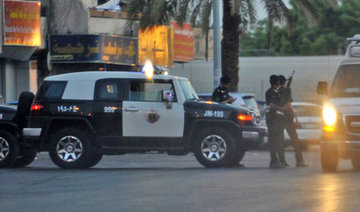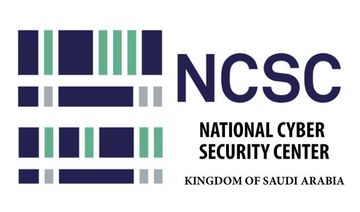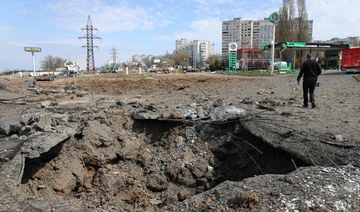JEDDAH: A Special Criminal Court in Riyadh began the trial of two Arabs accused of spying.
The prosecutor demanded their conviction and condemnation with discretionary penalties to dissuade others from cooperating with foreign intelligence network.
The prosecutor also demanded the confiscation of their mobile phones and their deportation from the Kingdom at the end of the trial.
The two men have been accused of cooperating with Mossad, entering the Kingdom to gather information , declaring their sympathies for Daesh and supporting the terrorist organization.
The two suspects have been given the right to appoint lawyers. In case they cannot afford the lawyers, the Ministry of Justice will appoint a lawyer at its own expense.
Trial of two Arabs accused of espionage begins
Trial of two Arabs accused of espionage begins
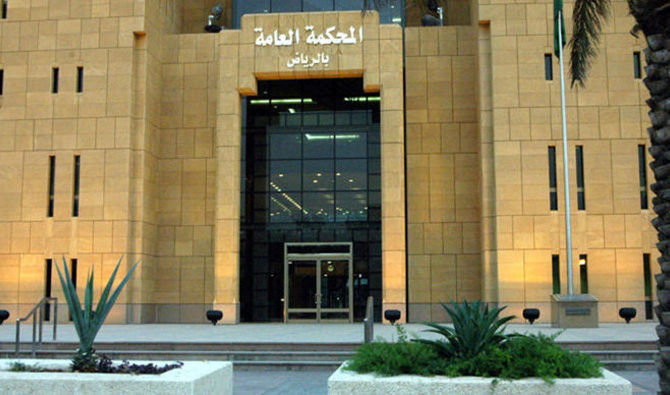
- The prosecutor demanded their conviction and condemnation with discretionary penalties
- The claimant has also been accused of using illegal drugs, violating the Kingdom’s law by overstaying after Hajj and giving false information about himself
Moroccan asylum-seeker gets life sentence for killing UK retiree in attack motivated by war in Gaza
“The murder of Terence Carney was a terrorist act in which you hoped to influence the British government,” she said
LONDON: A Moroccan asylum-seeker who stabbed a British retiree to death in revenge for Israel’s war against Hamas was sentenced Friday to at least 45 years in prison for what the judge termed a terrorist act.
Ahmed Alid told police after his arrest that he’d killed 70-year-old Terence Carney in the northeast England town of Hartlepool because “Israel had killed innocent children.”
“They killed children and I killed an old man,” he said during questioning.
Prosecutors said that on Oct. 15 — eight days after the Hamas attack on Israel that triggered the war in Gaza — Alid attacked his housemate, Iranian asylum-seeker Javed Nouri, with a knife as he slept. Nouri survived. Alid then ran outside, encountered Carney having a morning walk and stabbed him six times.
Prosecution lawyer Jonathan Sandiford said Alid had told police that “if he had had a machine gun and more weapons, he would have killed more victims.”
Alid, 45, had denied the charges against him. Although he acknowledged stabbing the men, he said he had no intent to kill or cause serious harm.
A jury at Teesside Crown Court last month found Alid guilty of one count of murder, one count of attempted murder and two counts of assaulting police officers during his post-arrest interview.
Judge Bobbie Cheema-Grubb sentenced Alid to life with no chance of parole for 45 years, saying he had shown “no genuine remorse or pity” for his victims.
“The murder of Terence Carney was a terrorist act in which you hoped to influence the British government,” she said. “You hoped to frighten the British people and undermine the freedoms they enjoy.”
In a victim impact statement, the victim’s wife Patricia Carney said she could no longer go into town because it was “too painful” to be near the spot where her husband was murdered.
Nouri, a convert to Christianity, said the attack had destroyed his sense of safety.
“I would expect to be arrested and killed in my home country for converting to Christianity but I did not expect to be attacked in my sleep here,” his statement said. “How is it possible for someone to destroy someone’s life because of his religion?”
Ahmed Alid, a Moroccan asylum-seeker who stabbed a British retiree to death in revenge for Israel’s war against Hamas was sentenced Friday to at least 45 years in prison for what the judge termed a terrorist act. (X/@DaveAtherton20)
Slovak PM has new surgery, condition ‘still very serious’

- The Banska Bystrica hospital director said Fico remained “conscious” despite being in a “serious” condition
- “This is a lone wolf whose actions were accelerated after the presidential election since he was dissatisfied with its outcome,” Interior Minister Matus Sutaj Estok said
BRATISLAVA: Slovak Prime Minister Robert Fico’s condition was on Friday “still very serious” two days after an attempted assassination, his deputy and close ally said, as police raided the suspect’s home.
Fico was hospitalized after the shooting on Wednesday, which happened as the 59-year-old leader was speaking to members of the public after a meeting in the central town of Handlova.
“He was operated on again, he had an almost two-hour-long operation,” deputy prime minister Robert Kalinak told reporters outside the hospital in Banska Bystrica.
Fico had previously undergone a five-hour-long surgery, shortly after being airlifted from the scene of the attack on Wednesday.
“His state is still very serious. I think it would take a couple of days to see the course of the development of his state,” Kalinak added on Friday.
The Banska Bystrica hospital director said Fico remained “conscious” despite being in a “serious” condition.
Earlier on Friday, local media reported that Slovak police had searched the home of the man charged with the shooting.
Officers brought along the alleged gunman, who was wearing a bulletproof vest and helmet, to the apartment he shared with his wife in the western town of Levice, Markiza TV footage showed.
“Police stayed in the apartment for several hours... They took the computer and documents out of the apartment,” the private broadcaster said.
Police, who told AFP they would not comment on an ongoing investigation, have not named the suspect but media have identified him as 71-year-old writer Juraj Cintula.
He was charged on Thursday with attempted murder with premeditation in what the authorities have called a politically motivated attack.
“This is a lone wolf whose actions were accelerated after the presidential election since he was dissatisfied with its outcome,” Interior Minister Matus Sutaj Estok said.
The attack has stoked fears of further violence and instability in the politically polarized nation, just weeks before European Parliament elections.
Officials drew a link to the political situation in the country, with its political scene marred by disinformation and attacks on social media during recent election campaigns.
Slovak president-elect Peter Pellegrini, who won an election in April, on Wednesday urged the political parties to suspend or reduce campaigning before the EU vote.
The biggest opposition party, centrist Progressive Slovakia, and others announced that they had done so.
Fico, a four-time premier and political veteran, returned to office in October.
Since then, he has made a string of remarks that have soured ties between Slovakia and neighboring Ukraine after he questioned the country’s sovereignty.
After he was elected, Slovakia stopped sending weapons to Ukraine, invaded by Russia in 2022.
Saudi writer brings massive crowds to Rabat Book Fair

- His first novel was rejected by more than 20 publishing houses, so Al-Muslim printed and self-published the title at his own expense
- Today, Al-Muslim has published 32 works, ranging from epic series to short stories
MAKKAH: Saudi author Osamah Al-Muslim’s appearance at the Rabat International Book Fair in Morocco has sparked huge interest from visitors at the event, which runs until May 19.
A book signing event by Al-Muslim drew large crowds, especially among young people and teenagers. The fair’s management was later forced to shorten the signing ceremony to alleviate overcrowding.
The 47-year-old writer, born in Al-Ahsa, spent his childhood in the US before returning to the Kingdom to complete his studies. He graduated from the Department of English Literature at King Faisal University.
“The Rabat International Book Fair is one of the most prestigious exhibitions, and I was pleased to visit it for the first time to meet my dear readers who came from all parts and cities of Morocco,” Al-Muslim told Arab News.
“The attendance was remarkable, but unfortunately, I was not able to meet most of them, which saddened me. However, there is now an intention, with the kind invitation of Moroccan Minister of Youth, Culture and Communication Mohamed Mehdi Bensaid, to hold a series of signing events in many major Moroccan cities to meet as many readers as possible,” he added.
Al-Muslim spoke about his origins as a writer, expressing how difficult it was to get a start in the industry. His first novel was rejected by more than 20 publishing houses, so Al-Muslim printed and self-published the title at his own expense.
“I marketed it myself through a small online store run by a young Saudi. The funny thing is that after the success of the first edition, all the publishing houses that had rejected the novel contacted me to collaborate with them,” he said.
Today, Al-Muslim has published 32 works, ranging from epic series to short stories. More than 15 editions have been translated into English, with work underway to translate the rest of Al-Muslim’s books.
“The first part of ‘Arabistan Orchards’ has been translated into Chinese, with more than 50,000 copies printed, and efforts are ongoing to translate the remaining parts,” he said.
“As for my cultural vision, I believe that old templates are no longer attractive to this generation. Relying on difficult and complex language, and showcasing linguistic and cognitive proficiency as a challenge to the reader is no longer appealing. Today’s readers need an interesting story, woven intelligently and in smooth language,” he added.
Al-Muslim “never paid attention to the critics” because he “knew their backgrounds, orientations and ideas.
“Had I listened to them, I would have stopped from the first day. They want everyone to adopt their views and not deviate from the methods they have set,” Al-Muslim said.
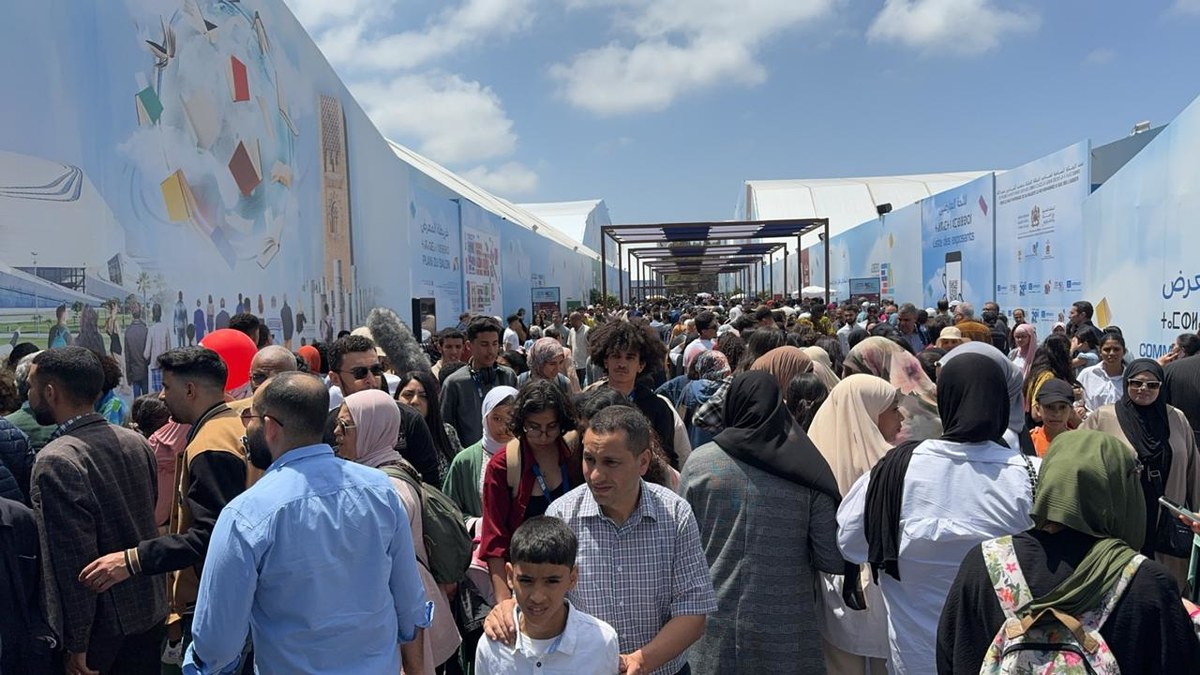
“The fantasy I present combines truth and imagination, relying on our Arab heritage and myths, especially those from Saudi Arabia, rather than global stories and legends that do not belong to us or resemble us. Therefore, readers become attached to this genre because it stems from their environment and is close to their thoughts, personalities and feelings.
“I present it in an easy and smooth language, but with philosophical and cognitive depth. This style is known as simple, yet it is enjoyed and understood by both young and old, and by all segments of society,” he added.
By breaking old, outdated literary molds, Al-Muslim hopes to keep up with the ideas, problems, wishes and aspirations of a new generation, saying he has “become close to them” and “understands them greatly.”
He added: “There is no doubt that the originality in my writing and my lack of imitation offers something new and unfamiliar, which has sparked excitement, enthusiasm, attachment and a desire to seek out new things among my readers.”
The author discussed plans for screen adaptation: “Yes, God willing, MBC Group has acquired the rights to almost all of my publications to turn them into dramatic series and films.
“Approximately 80 percent of the first part of the ‘Arabistan Orchards’ series has already been completed, with production costs considered the highest in Arab fantasy, exceeding $30 million.
“The beginning of work on the ‘Fear’ trilogy, the most famous book in my publications, has also been announced. Additionally, we are working on producing a movie based on one of my short novels, which the group will announce later.”
Ukraine braces for ‘heavy battles’ as Putin says Russia carving out Kharkiv buffer zone

- Colonel-General Oleksandr Syrskyi said the attack had expanded the area of hostilities by around 70km
- “We understand there will be heavy battles and that the enemy is preparing for that,” the head of the Ukrainian armed forces wrote on Telegram
KYIV: Ukraine’s top commander warned on Friday of “heavy battles” looming on the war’s new front in the northeastern Kharkiv region as Russian President Vladimir Putin said Moscow was carving out a “buffer zone” in the area.
Russian forces attacked the Kharkiv region’s north last Friday, making inroads of up to 10 kilometers (6 miles) and unbalancing Kyiv’s outnumbered troops who are trying to hold the line over a sprawling front nearly 27 months since the full-scale invasion.
Colonel-General Oleksandr Syrskyi said the attack had expanded the area of hostilities by around 70km and that Russia had launched its incursion ahead of schedule when “it noticed the deployment of our forces.”
“We understand there will be heavy battles and that the enemy is preparing for that,” the head of the Ukrainian armed forces wrote in a statement on the Telegram app.
Speaking during a state visit to China, Putin said Moscow’s forces were creating a “buffer zone” to protect Russian border regions, but that capturing the city of Kharkiv, Ukraine’s second largest, was not part of the current plan.
The Russian leader told a news conference the assault was a response to Kyiv’s shelling of Russian border regions such as Belgorod.
“Civilians are dying there. It’s obvious. They are shooting directly at the city center, at residential areas. And I said publicly that if this continues, we will be forced to create a security zone, a buffer zone. That is what we are doing,” Putin said.
Russian forces were able to advance 10 kilometers in one place, but Ukrainian forces have “stabilized” the front, President Volodymyr Zelensky told Ukrainian media outlets in comments published on Friday.
HEAVIEST ASSAULTS IN EAST
Moscow’s forces are mounting their heaviest assaults in the eastern Donetsk region, according to data compiled by the Ukrainian General Staff, which said the eastern Pokrovsk front had faced the most regular assaults in recent days.
In his comments, Syrskyi said Ukrainian forces were preparing their defensive lines for a possible new Russian assault on the Sumy region, which would mark another front more than a hundred kilometers to the north of Kharkiv.
Kyiv has warned that Russia has small units of forces near the Sumy region.
Volodymyr Artiukh, head of the Sumy region’s military administration, said Russian military activity along the northern Ukrainian region was at a high level.
“We note that the actions (of Russian forces) are systematic. Shelling continues, in fact, along the entire border, with an intensity of 200-400 explosions per day... The intensity of enemy sabotage groups has increased,” he said.
Saudi Arabia, UAE ‘the locomotives of the region’ says French trade commissioner

- Vision Golfe returns for a second edition June 4-5 at the French Ministry of Economy in Paris
- The benchmark event between France and the Gulf countries aims to promote trade and economic relations
DUBAI: After the success of its first edition, Vision Golfe returns for a second edition June 4-5 at the Ministry of Economy, Finance, Industry and Industrial and Digital Sovereignty in Paris.
The benchmark event between France and the Gulf Cooperation Council countries aims to promote trade and economic relations, building on a long-standing relationship between France and the GCC states, particularly between France and Saudi Arabia.
“Between France and the GCC countries … we have a long story of friendship. We build bridges together based on mutual comprehension, respect, mutual interest, ambition, and our political bilateral relation is absolutely at the top,” said Axel Baroux, trade and invest commissioner of Business France Middle East, in an interview with Arab News in French.
“We have a great and solid commercial and investment relationship, but I think that we can do even more,” he added.
Vision Golfe is a platform to promote business cooperation in markets with high growth potential, and an opportunity to meet key economic players: ministers, start-ups, and senior executives, among others.
“Vision Golfe is a tool, the starting point for negotiations and discussions. Discussions continue throughout the year … our trade and investment grew last year by almost 8 percent,” declared Baroux.
“If I take the figures of the GCC investment in France, we are reaching €14 billion ($15.178 billion) which is exactly €13.7 billion,” he added, while pointing out that the figure is underestimated for not considering indirect investments.
Despite the challenges facing the global economy, Gulf countries continue to offer an environment conducive to investment and talent attraction, leveraging national policies focused on economic diversification, sustainable development, and energy transition.
This creates a favourable atmosphere for the establishment of companies in various sectors such as energy and new technologies, as well as sectors such as healthcare, education, retail, and tourism.
As the two largest markets in a region marked by considerable growth in trade, Saudi Arabia and the UAE are today “the locomotives of the region,” Baroux says.
This explains the rise in French companies setting up operations and participating in major projects and trade in the Gulf.
Baroux highlighted his participation in a delegation of French companies in Saudi Arabia, with over 120 companies taking part in the event organized by Business France and the MEDEF, in the presence of the director general of Business France, Laurent Saint Martin, French foreign trade advisors, and Bruno Bonnell, the secretary-general for Investment FRANCE 2030.
“We were admirably received. Agreements were signed with STC and Business France. We also visited the PIF, and had discussions with MISA,” he added.
The UAE also offers opportunities for French companies across sectors, with “more than 600 French companies on ground … Translating into direct employment, projects and a solid economic relationship,” according to Baroux.
“We have very strong, very solid bilateral economic relations between France and the GCC and it is a reason why we expect Vision Golfe to be the annual rendez-vous, the annual meeting, where all the companies from the GCC and from France can meet together in Paris,” he added.
HIGHLIGHTS
• Converging national strategies
• Building sustainable partnerships
• How to invest and set up a business in the Gulf
• Energy for the future: sustainable energy and resource management after COP28
• Cooperation and investment opportunities in various sectors
• France as Europe’s most attractive destination for foreign direct investment
Economic diversification, innovation, artificial intelligence, infrastructure, and transport development are among the themes addressed during the second edition.
The French touch and know-how will also be in the spotlight, in the presence of a number of guests and speakers, such as Jean Yves LeDrian, chair of the French Agency for the Development of AlUla, the CEO of NIDLP Suliman Almazroua, the secretary-general of the UAE International Investors Council, Jamal Saif Al-Jarwan, with the participation of the Abu Dhabi Investment Office, Mohamed Bin Zayed University, and Kuwaiti and Qatari groups to state a few.
“Vision Golfe 2023 was a real success, and of course, I expect more for Vision Golfe 2024. More B2B meetings, more partnerships, even more interaction between French companies and GCC companies. We will have this year at Vision Golfe 2024 some key agreements that will be signed, during the session,” said Baroux.



